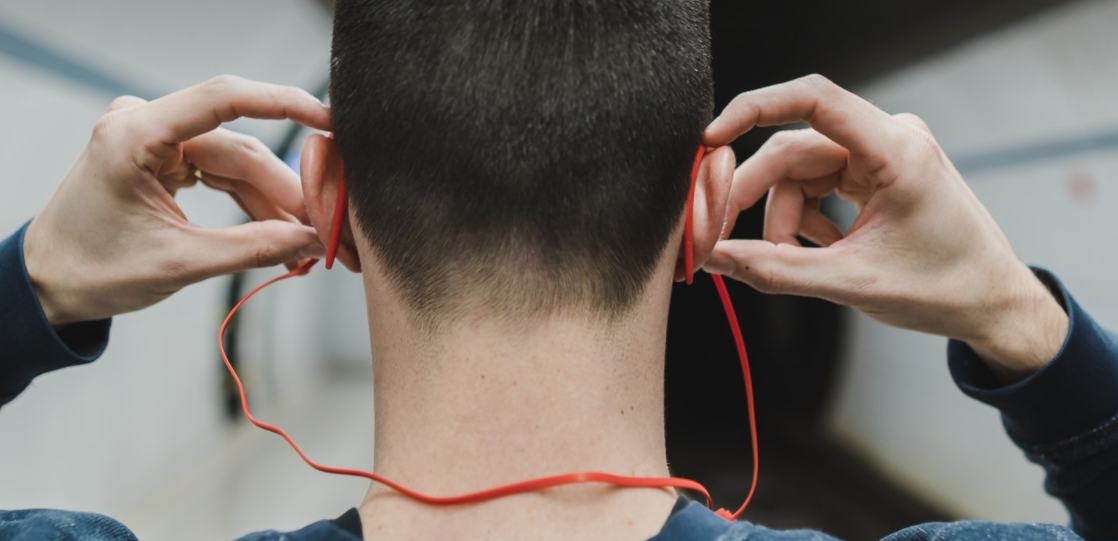4 Tips to Improve Your Conversational French

Building up your French conversation skills is one of the hardest parts of the learning process.
If you went down the conventional approach, you may have studied the grammar and learned the key vocabulary items that you need for day-to-day interactions.
However, you may have faced a hurdle when it comes to actually speaking and engaging in conversations. This is due to the fact that learning a new skill involves different types of memory.
On the one hand, when you first learn to ride a bike, this new set of skills is stored in your brain as implicit memory, which is totally unconscious. In other words, it is impossible for you to describe what it takes for you to ride a bike. Your body just knows how to do it.
On the other hand, learning a foreign language is often done explicitly - meaning that you may be able to explain every detail behind French grammar without actually being able to come up with a sentence from the top of your head. Traditional language classes emphasize this type of learning through analysis of the grammar and by cramming vocabulary.
In order to speak French in a conversation, you need to put what you have learned into effect by practicing it in an effective way. This article will suggest different ways you can make French conversation second nature.
1. Speak
The #1 way you can improve your conversational French is to actually speak.
Yes. I am sure.
For a lot of people, getting to speak is very difficult. Speaking a foreign language involves emotions, as it gets you out of your comfort zone by making you vulnerable to judgment. If you feel like fear is a problem you need to overcome, this blogpost that I wrote might benefit you.
Emotions set aside, the first step toward speaking is to make sure that you pronunciation is good enough so that people can actually understand you. Hopefully, I wrote a full guide to French pronunciation which I recommend you read if you feel like you need a refresher. Making sure that you make the proper sounds and that your intonation is correct is key to be understood by native speakers.
Once the pronunciation has been dealt with, you need to have enough vocabulary and certain mastery of the grammar. If that's what you need, Tip #3 is dedicated to that problem.
When it comes to speaking, there are three practical ways you can practice your skills.
-
Travelling is the most effective way to find yourself in an environment where you can practice French everywhere at any time. It allows you to learn through immersion and to get familiar with the culture. The huge inconvenient is that not everybody has the time or the money to travel in the first place. For some people, travelling is a luxury. But no worries, there are still two ways you can practice your French conversation.
-
Language Meet-ups. Unless you live in small town, chances are there are meet-ups near you where you can practice your French. I personally had the opportunity to travel to practice and learn foreign languages. However, when I cannot, I make sure I join meet-ups to meet people who want to learn French so that we can exchange our knowledge. You can usually find such meet-ups on Facebook groups or pages. Additionally, universities often organize similar events.
-
Practice Online. This option is the most convenient one. If you have a smart phone, practicing French conversation is available at the tip of your finger, at any time of the day. There are several ways to go about it. When I start off practicing a language, I always do it by writing (this is especially beneficial if you're a visual learner). Chatting online on apps such as HelloTalk gives you time to think about the form of whatever you're saying. That is - you can pick your vocabulary or look up for words in case you don't know them. It also enables you to elaborate grammatical structures. This builds up a habit of building sentences with the right words and idioms. The other thing is that people can actually freely correct you, which is annoying when you're speaking in real life. The next thing you can do to improve your conversational French is to send vocal messages. If you are a Whatsapp user, you're probably familiar with this process. The upside is that it gets you to speak without the pressure you would get in a live conversation. Likewise, it allows you to think about what you say and how you want to say it. The last step is live calls. If you're comfortable with practicing French on the phone, HelloTalk enables you to do it. It might not be as good as a real-life interaction but you can do it from the comfort of your home. Notice how these three steps are progressive. The key is to build habits and slowly increase the level of difficulty by first getting to write and then speak. If you're more of an audio learner, feel free to skip the first stage as it might not be effective for you.
2. Listen
In order to be able to speak French properly, you have to listen to the language for hours beforehand. A big problem with some learners is that they're trying to speak without focusing on comprehension. They might be able to utter simple sentences but not understand what is said back them in turn.
Furthermore, the more you understand, the more you will be able to say. In my opinion, real language learning is done by absorption, while speaking is just an opportunity to practice what you already know and maybe learn some more on the way. Think of your comprehension skills as a field in space and your conversation skills as subfield of that field. The simple reason for that is that you cannot say something you don't understand.
In other words, a simple way to improve your conversational French is to listen to the French language. As a beginner, I always like to hear and read the language as the same time. The easiest way to do so is find French videos on YouTube which are subtitled in French. While it is true that most videos in French do not feature subtitles, YouTube's automatic subtitle generator has become quite accurate. Easy French, a subdivision of the Easy Languages YouTube channel, has great videos of natural French conversations in the street on interesting topics. The next step is to listen to audiobooks. The density of books is a great way to train your mind to understanding a language due to the diversity of the vocabulary and grammatical structures. Again, I personally find it effective to read the actual book while listening to it simultaneously. It is an opportunity to internalize the sounds of the French language as well as its rhythm and intonation. I've done that for every foreign language I've learned and it helped me a great deal with both pronunciation and listening comprehension. Alternatively, you can listen to podcasts. It is an excellent way to optimize your time while commuting or while doing any activity that doesn't require thinking. This blogpost provides an extended list of podcasts you can listen to to improve your French comprehension.
3. Improve Your Grammar and Expand Your Vocabulary
As mentioned above, in order to improve your French conversation, you need to first expand your comprehension. The key to having a better grasp on the language is exposure. Being exposed to the language familiarizes your brain to it, resulting in increased speed and better accuracy.
Exposure increases your knowledge in two ways. One the one hand, you expand your vocabulary, on the other, you improve your grammar. However, this type of learning has nothing to do with accumulating "head knowledge". On the contrary, exposure allows you to store information the same way learning to ride a bike would. In other words, you're learning implicitly, which also means that don't have to think in order to access this type of knowledge.
So, what is one the best way to get exposure to any language? My favorite way is to read books - for the simple reason that it is the densest form of learning material. Reading a book gives you access to a myriad of grammatical structures as well as new vocabulary items.
As a beginner, starting to read French may seem daunting. Hopefully, we have another article on Speechling which recommends a few books you can read to easily get started. However, I suggest that you start out slowly and build a habit of daily reading. Being consistent will yield better results than doing it once in a while.
Alternatively, or simultaneously, you can listen to audio books. Listening is another great way to expose yourself to French. The books listed in the article mentioned above will most definitely have an audio format. The importance of listening has already been mentioned above, so I will not elaborate on this idea.
Reading in a dense format, whether it be books, newspapers or blog posts, will always be beneficial to improve your conversation. You'd be amazed by the results.
4. Get Feedback
Speaking, listening or reading is always a great way to go about practicing your French conversation. However, it will never be as efficient as it could be if actually got feedback on your speech.
Feedback allows you to spot your mistakes faster than you could on your own. By doing so, you can also adjust and correct them faster and more efficiently. In other words, feedback enables you to cut the learning curve.
Before suggesting ways that you can get feedback on your speech, I recommend that you be mindful of the form of feedback you actually get. I would advise that you stay away from people who constantly correct your mistakes as you speak. It can easily be irritating to have someone scrutinize your every word and it's not going to help you - you're not a computer and you will probably not remember all your mistakes. Instead of relying on "live feedback", the best way would be to get feedback after the facts.
Hopefully, Speechling does just that. Speechling is a platform which allows you to improve your speech easily by getting feedback from native speakers. All you have to do is read a set of sentences out loud and record yourself. Our professional native French speakers will then tell you what you did great, what you can improve and how to do it. This system is easy to use and efficient on both time and energy.
Alternatively, you can also get feedback from conversations with tutors on iTalki. This platform has you interact live with a tutor who will correct your mistakes and suggest ways you can improve your French conversation. Again, be mindful of the way feedback is delivered. Make sure you ask you tutor to take notes and to give you the information later on.




